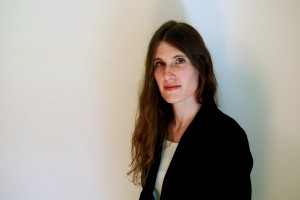Hannah Eagleson’s first guest blog series, which she wrote before joining ESN as a writer/editor in 2014. At the time Hannah was a musician, writer, and recent PhD recipient living in central Pennsylvania. The Summer Quote Series offers brief reflections on quotes that she found helpful when thinking about her academic work. Thank you, Hannah!

I’ve always loved Dorothy L. Sayers’ Peter Wimsey mysteries. There are many reasons, but two of them are Lord Peter’s love of quotations and his affirmation of work (even if he did inherit a fortune). Like Lord Peter, I sometimes find it hard to say anything without quotations, and also like Peter, I go a bit crazy if I don’t have work to do. So, combining these two interests, during the month of July I’ll be posting a series of quotations that I’ve found helpful in thinking about my academic work.
Not all of these are quotations from scholars, and not all of them were originally intended to describe the academic life. But each helps me in maintaining a wider perspective about the academic vocation, in seeing how God’s Kingdom might be at work in the details of semester schedules and library visits and scholarly writing.
I would welcome conversation in the comments or via email. I’ve offered a few possible questions after each quotation, but feel free to suggest your own, challenge my terms, or take the conversation in a different direction as well.
The first quotation comes from a contemporary of Sayers, Simone Weil. In the essay from which this quotation comes, Weil discusses academic study as a way of cultivating the kind of attention necessary for listening to God and to others. She comments on the unexpected fruit attention to academic studies may sometimes bear, even if the study itself didn’t seem to be successful at the time:
Even if our efforts of attention seem for years to be producing no result, one day a light that is in exact proportion to them will flood the soul. Every effort adds a little gold to a treasure no power on earth can take away. The useless efforts made by the Curé d’Ars, for long and painful years, in his attempt to learn Latin bore fruit in the marvelous discernment that enabled him to see the very soul of his penitents behind their words and even their silences. (59)
– “Reflections on the Right Use of School Studies with a View to the Love of God,” Waiting for God by Simone Weil (trans. Emma Craufurd, HarperCollins Perennial Classics edition 2001)
I find this quotation helpful because it reminds me that paying attention to any particular academic task is also a way of deepening my ability to pay attention to God and to other people. When I am struggling to understand a difficult line in Shakespeare, or tracking down a source describing some historical practice, I am doing those things partly for the sake of the work itself. But I am also doing them because the patience and attention these tasks help to cultivate can be offered as a gift to students and friends, and ultimately to God Himself. Even projects that don’t go where I had hoped become valuable in this way, because they help to cultivate the virtue of attentiveness.
Do you have any similar experiences to the one described here? What activities help you to cultivate the discipline of attention? How has cultivating discipline in specific academic areas affected your relationship with God and with other people?
Dr. Hannah Eagleson loves building the ecosystem Christian scholars need to flourish and create positive impacts, in the university and beyond. She is Associate Director of InterVarsity’s Emerging Scholars Network, a digital first ministry serving thousands of early career Christian scholars. Dr. Eagleson launched the ESN student/early career track at the American Scientific Affiliation annual faith and science conference. She is the editor of *Science and Faith: Student Questions Explored* (Hendrickson, 2019), and the one-semester guidebook *Scholar’s Compass: Connecting Faith & Work for Academics* (InterVarsity Emerging Scholars Network, 2021), with design by noted liturgical artist Ned Bustard. She also launched the Scholar’s Compass online devotional series in her previous role as ESN Editor. Dr. Eagleson holds an MA from St. John’s College (Annapolis, MD) and a PhD in Renaissance literature from the University of Delaware.

When I was child of reading age I was very fond of religious and wisdom literature (esp. Bible, Tao Teh Ching, Bhagavad gita). I later had several ‘religious’ or spiritual experiences, with one at age 20 which, if I remember correctly lasted for about three days. I have the sense of them being an outcome or somehow connected to my early orientation. Ms. Weil also later impressed me quite much. I was just looking for the passage where she compares herself to fallen leaves. I believe it was also said of Jesus that there was no reason for anyone to like him.
Thanks for the comments, Mark! I think often that later experiences are the fruit of reading or thinking long before. I’ve often realized something important about a text a decade or more after first reading it, or seen ways that something earlier shaped my later life in a way I wasn’t expecting.
I can’t remember where the passage is in which Weil compares herself to fallen leaves, but if you think of it, please feel free to state it hear. I’m sure a lot of people would like to know.